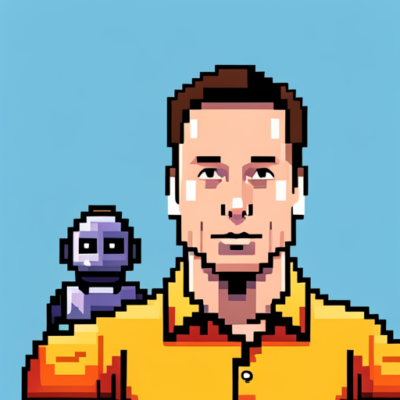
Anthropic introduces the Claude 3 family of AI models to address cost, performance, and hallucination concerns, with Opus surpassing GPT-4 and Gemini Ultra, while OpenAI faces legal issues with Elon Musk and the threat of a computer virus targeting AI systems.
At a glance
- Anthropic introduced the Claude 3 family of models – Haiku, Sonnet, and Opus.
- Opus surpassed GPT-4 and Gemini Ultra in comprehension and fluency.
- All three models outperformed OpenAI’s GPT-3.5 and Gemini 1.0 Pro.
- OpenAI is in a legal dispute with Elon Musk over alleged breaches of the founding agreement.
- Companies are investing in upskilling their workforce for generative AI projects.
The details
Anthropic, a leading AI company, recently introduced its Claude 3 family of models, comprising Haiku, Sonnet, and Opus.
These models aim to address concerns related to cost, performance, and hallucinations in the AI space.
Notably, Opus, the most advanced model in the lineup, has surpassed the capabilities of GPT-4 and Gemini Ultra, showcasing near-human levels of comprehension and fluency.
Technical Advancements
In a technical paper, Anthropic demonstrated that all three models outperformed OpenAI’s GPT-3.5 and Gemini 1.0 Pro in various aspects.
Legal Dispute
In a legal twist, OpenAI is currently seeking the dismissal of a lawsuit filed by co-founder Elon Musk over alleged breaches of the startup’s founding agreement.
Musk, who co-founded OpenAI as a nonprofit organization to counter Google’s AI dominance, claimed that the startup’s actions deviated from the initial agreement.
However, OpenAI has refuted Musk’s claims, stating that he was aware of their plans and supportive of exploring new directions.
Furthermore, researchers have recently developed a computer virus named Morris II, designed to exploit generative AI systems like Gemini Pro and GPT-4. This virus can manipulate AI models to carry out malicious tasks such as spamming and stealing confidential data.
On a different front, Hugging Face unveiled its latest code generation model, StarCoder2, developed in collaboration with Nvidia.
This model can generate code across more than 600 programming languages and is available in three sizes.
Additionally, Udo Sglavo of SAS penned an opinion piece on Human in the Loop (HITL) evaluations, highlighting the importance of the synergy between machine and human intelligence.
In the business realm, Accenture has joined forces with Cohere to offer language models and search capabilities to enterprises worldwide.
This partnership aims to provide generative AI solutions to enhance productivity and efficiency for enterprise clients.
Cohere’s Command model powers a knowledge agent for Accenture’s Finance and Treasury teams, leveraging Retrieval Augmented Generation (RAG) capabilities to access real-time information.
The collaboration places a strong emphasis on data privacy and security while integrating AI into business operations at scale.
The demand for scalable, enterprise-grade generative AI solutions is on the rise, leading to fierce competition in the enterprise AI market from tech giants and startups such as Microsoft, Google, and IBM. The impact of generative AI on the future of work is substantial, with nearly a quarter of all jobs globally expected to undergo changes in the next five years, necessitating the re-skilling and upskilling of the workforce.
Companies that excel in AI adoption will play a pivotal role in shaping the future of work by focusing on trust, security, and well-being.
Lastly, it is imperative for companies embracing generative AI to invest in upskilling their workforce and cultivate a culture of responsible AI adoption, as highlighted by Lee Fulmer.
Employees increasingly utilize AI tools like ChatGPT, indicating curiosity and willingness to learn.
Businesses should prioritize reinvesting in their staff for generative AI projects and ensure inclusivity of individuals over 40 who may not be well-versed in new technologies.
Fulmer recommended leveraging resources like the Open University in the U.K. to offer subsidized modules on emerging technologies and enhance access to technology for the entire population.
As AI tools become more accessible, companies are now placing a premium on prompt engineering skills over data scientists, with individuals with backgrounds in literature or familiarity with language construction being highly sought after.
Adapting to evolving job roles will ultimately result in more productive companies.
Article X-ray
Sources
Here are all the sources used to create this article:
Facts attribution
This section links each of the article’s facts back to its original source.
If you suspect false information in the article, you can use this section to investigate where it came from.
| aibusiness.com |
|---|
| Anthropic unveiled its Claude 3 family of multimodal models, which address concerns about cost, performance, and hallucinations. |
| – The three new models in the Claude 3 family are Haiku, Sonnet, and Opus, capable of accepting and generating text and images. |
| – Anthropic’s technical paper shows that all three models beat OpenAI’s GPT-3.5 and Gemini 1.0 Pro in various areas. |
| – Opus, the most advanced model, beats GPT-4 and Gemini Ultra, exhibiting near-human comprehension and fluency levels. |
| – OpenAI is seeking a dismissal of the lawsuit brought by co-founder Elon Musk over claims of breaching the startup’s founding agreement. |
| – Musk co-founded OpenAI as a nonprofit to counter Google’s AI resources and staff. – OpenAI rebutted Musk’s claims, stating that he was aware of their plans and was supportive of finding a new path. |
| – Researchers created a computer virus, Morris II, capable of exploiting generative AI systems like Gemini Pro and GPT-4. – Morris II manipulates AI models to carry out malicious tasks like spamming and stealing confidential data. – Hugging Face unveiled the latest version of its code generation model, StarCoder, which was developed with Nvidia. |
| – StarCoder2 can generate code across over 600 programming languages and comes in three sizes. |
| – Udo Sglavo of SAS wrote an opinion piece on Human in the Loop (HITL) evaluations, highlighting the synergy between machine and human intelligence. |
| venturebeat.com |
|---|
| – Accenture has partnered with Cohere to bring language models and search capabilities to businesses worldwide. |
| – The collaboration aims to provide enterprise clients with generative AI solutions to boost productivity and efficiency. |
| – Cohere’s Command model powers a knowledge agent for Accenture’s Finance and Treasury teams. |
| – Cohere’s technology includes Retrieval Augmented Generation (RAG) capabilities to access real-time information. |
| – The partnership prioritizes data privacy and security while integrating AI into business operations at scale. |
| – The demand for scalable, enterprise-grade generative AI solutions is rapidly growing. |
| – The enterprise AI market is witnessing intense competition from tech giants and startups. – Microsoft, Google, and IBM are heavily investing in enterprise-ready AI solutions. |
| – The impact of generative AI on the future of work is profound, requiring re-skilling and upskilling of the workforce. – Nearly a quarter of all jobs globally will change in the next five years, with 50% of employees needing re-skilling. |
| – The winners in AI adoption will shape the future of work by prioritizing trust, security, and well-being. |
| aibusiness.com |
|---|
| – Companies adopting generative AI should invest in upskilling their workforce – Lee Fulmer emphasized the importance of fostering a culture of responsible AI adoption – Employees are already using AI tools like ChatGPT, showing curiosity and a desire to learn – Businesses should invest money back into staff for generative AI projects – It is important to include those over 40 who may not be familiar with new technologies – The U.K. could leverage the Open University to provide subsidized modules on emerging tech – Fulmer highlighted the need to increase access to technology for the entire population – AI tools are now more accessible, leading to non-technical individuals implementing them – Companies are now seeking professionals with prompt engineering skills over data scientists – Good prompt engineers are often literature majors or those familiar with language construction – Fulmer suggested investing in the 90% of the company without skills in using AI tools – Adapting to changing job roles will lead to more productive companies. |












